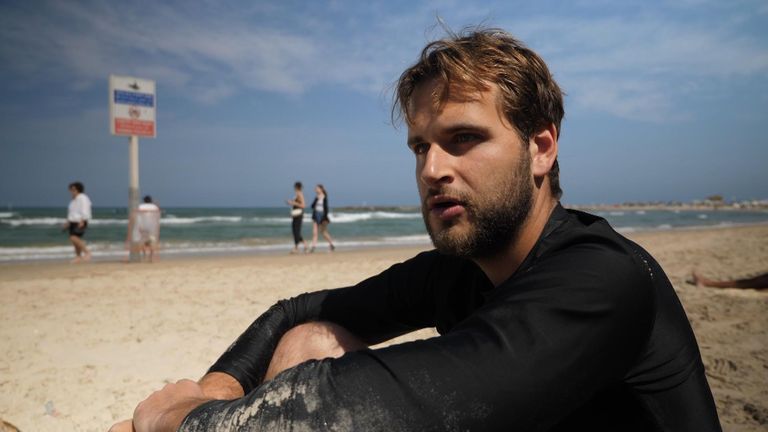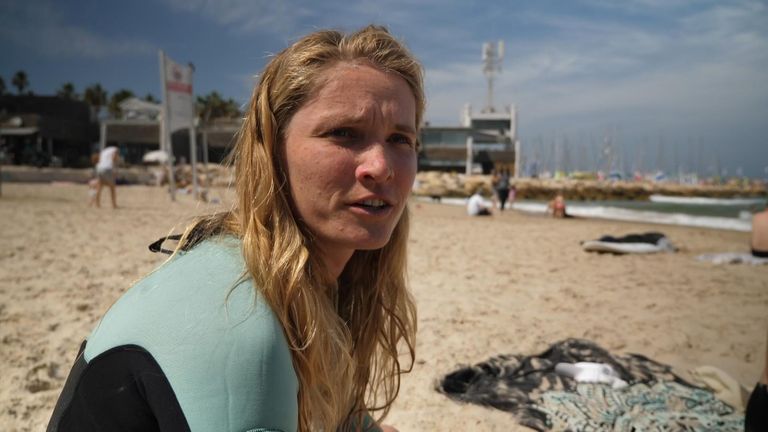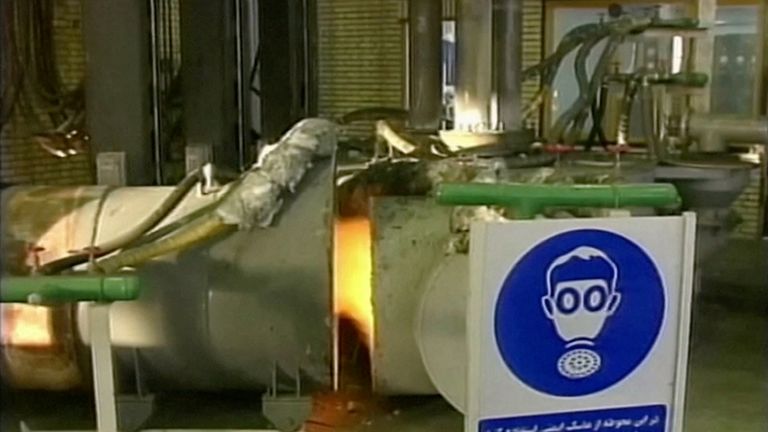
On Shabbat, the Jewish day of rest, people took to the beach in Tel Aviv.
Under the hot spring sunshine, the tensions between Iran and Israel seemed a world away.
Most of the people there are hoping that the worst of this phase of the crisis has passed.
Follow latest: Ten militants killed in Israeli raid in West Bank
As he rested on the sand between surfs, Jonathan Weiss said: “I definitely hope this direct bit is over.
“We have enough things to worry about – internally and with our direct borders.
“Lebanon, Hamas, Gaza… we don’t want to add anything to that.”
Lior Shalev agreed, saying: “I hope everything will be over soon. It’s just unnecessary for both sides to get people hurt.”
Israel’s government has remained officially silent on the attack on a base near the Iranian city of Isfahan. It is another indication that the situation is de-escalating.
The strike appears to have been limited; symbolic in nature to send a warning rather than ignite a bigger confrontation.
While the latest flare-up in the wider Middle East appears to have died down for now, Israel is still locked in conflict closer to home.
The indication is that Israel’s long-anticipated incursion into the southern city of Rafah – which Israel sees as the last stronghold for Hamas – may not be far away.
Read more:
Netanyahu faces pressure from Israeli right on Gaza’s future
Hezbollah’s red lines not crossed yet – but risk of war still high
US officials met their Israeli counterparts virtually this week to discuss the imminent incursion.
The White House has consistently warned the Israelis against a wholesale ground offensive of the city, fearing that an indiscriminate approach could lead to yet more huge civilian casualties.
But as we saw this week, Israel will make its own decisions on matters of war.
After Israel repelled a mass Iranian drone and missile attack, President Biden initially advised Prime Minister Benjamin Netanyahu to “take the win” and not strike back.
Within days, the US realised Netanyahu was going to strike anyway – albeit in a limited fashion.


